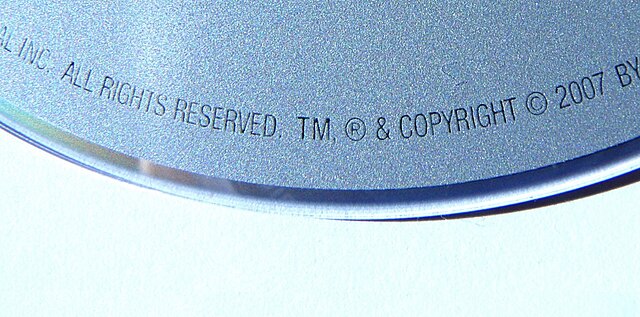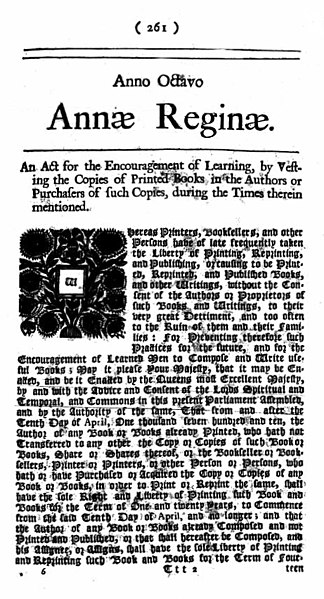"All rights reserved" is a phrase that originated in copyright law as part of copyright notices. It indicates that the copyright holder reserves, or holds for their own use, all the rights provided by copyright law, such as distribution, performance, and creation of derivative works; that is, they have not waived any such right. Copyright law in most countries no longer requires such notices, but the phrase persists. The original understanding of the phrase as relating specifically to copyright may have been supplanted by common usage of the phrase to refer to any legal right, although it is probably understood to refer at least to copyright.
The phrase "all rights reserved" appearing on a DVD
A copyright is a type of intellectual property that gives the creator of an original work, or another right holder, the exclusive and legally secured right to copy, distribute, adapt, display, and perform a creative work, usually for a limited time. The creative work may be in a literary, artistic, educational, or musical form. Copyright is intended to protect the original expression of an idea in the form of a creative work, but not the idea itself. A copyright is subject to limitations based on public interest considerations, such as the fair use doctrine in the United States.
The Statute of Anne (the Copyright Act 1709) came into force in 1710.
The Pirate Publisher—An International Burlesque that has the Longest Run on Record, from Puck, 1886, satirizes the then-existing situation where a publisher could profit by simply copying newly published works from one country, and publishing them in another, and vice versa.
A copyright symbol embossed on a piece of paper
Generic DVD: All rights reserved




